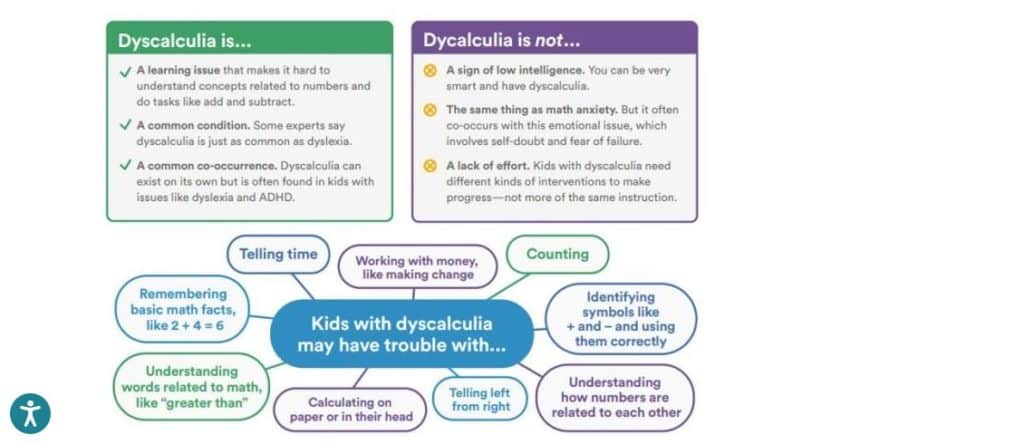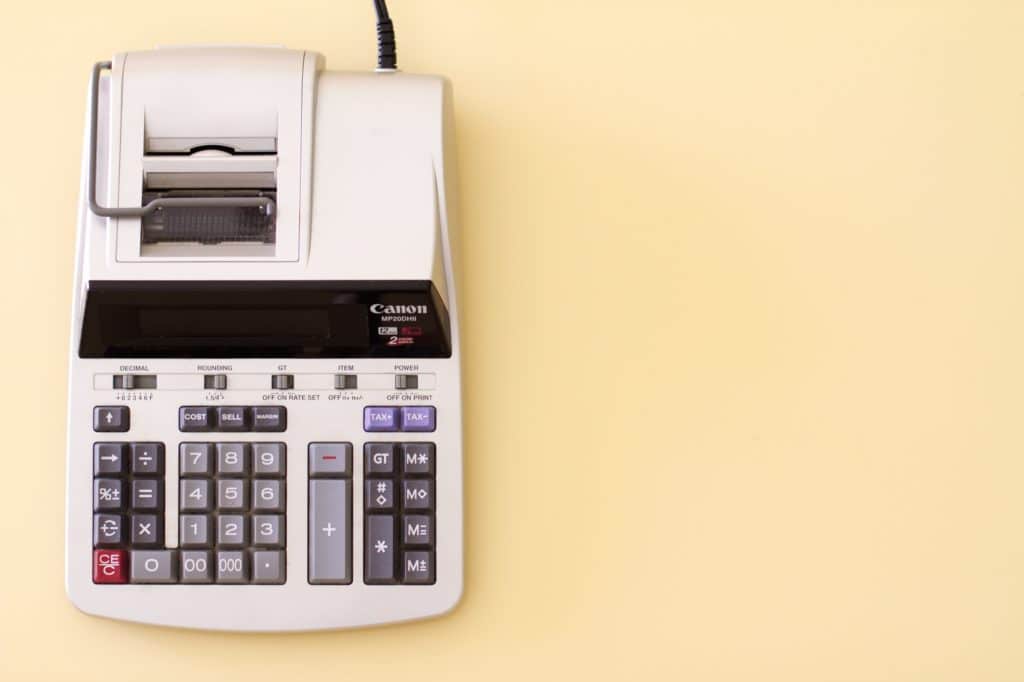When Michelle was in primary school, she struggled to understand and remember math concepts such as multiplication, division, and fractions. She also had a tough time understanding the difference between big and small.
“I had no idea I was dyscalculic. I just assumed I was as stupid as my math teachers made me out to be. My mother was always sad because she noticed I couldn’t read the analogue clock,” she recalls.
Dyscalculia is more than just a difficulty with math. It’s more severe than making mistakes when adding numbers or reversing digits when writing something down.
Also, dyscalculia, a learning disability, is not the same as “math dyslexia” or math anxiety
Dyscalculics may struggle to grasp simple number ideas, lack an intuitive sense of numbers, and struggle to master numbers, facts, and procedures.
What you should know about dyscalculia

According to Ladislav Kosc, a researcher who discovered dyscalculia as a learning disability in 1974, dyscalculia is a “difficulty in mathematical performance resulting from impairment to those parts of the brain that are involved in mathematical processing, without a concurrent impairment in general mental function.”
Dyscalculia is a specific learning disability that influences number sense, arithmetic fact memorisation, accurate and fluent calculation, and correct math reasoning.
Although it is not as common or well understood as dyslexia, it is thought to be widespread.
It is estimated that 5 to 10% of the world’s population suffers from dyscalculia. Although dyscalculics struggle to remember basic math facts and solve math problems, they don’t display the same symptoms.
Children with dyscalculia may struggle to reconcile verbal or written cues with math symbols and signifiers. For example, it may be challenging to connect the word “four” to the number “4”.
They may struggle to complete a math task because they find explaining how they arrived at a solution difficult. And when a child repeatedly fails math, it can lead to low self-esteem and impact their relationships with their peers or friends.
While some dyscalculics might have difficulty distinguishing between left and right, some might struggle to visualise things in their minds. Consequently, they might have trouble getting around, using maps, or following directions.
Hence, the need to adopt Assistive Tech (AT) tools. There are AT tools available to help dyscalculics with computing, organising, solving, and copying math problems on paper.
For many children, using technology to enhance learning is an effective strategy. Users can better set up and calculate basic math problems with visual and/or audio support.
Assistive Tech tools to help dyscalculics overcome their challenges
1. Calculator

A study shows that calculator use has been linked to improved operational and problem-solving skills. It also demonstratesthat students who have access to calculators have better functional and problem-solving abilities.
Because calculators are alternatives to traditional paper and pencil methods, they can help dyscalculics who cannot participate in problem-solving, pattern exploration, investigation, and working with real-world data.
A talking calculator includes a speech synthesiser that reads aloud each number, symbol, or operation key pressed by the user, as well as the solution to the problem.
It makes it easier to check assignments, read numbers and perform calculations. And the auditory feedback may assist them in checking the accuracy of the keys they press and verifying the answer before transferring it to paper.
Although students with dyscalculia struggle to learn basic math facts, they can learn higher-level skills and concepts. Calculators can provide dyscalculics access to higher-level math concepts.
2. Electronic worksheets
Electronic math worksheets are software programmes that assist users in organising, aligning, and working through math problems on a computer screen.
Onscreen numbers can also be read aloud using a speech synthesiser. This could be useful for people who have difficulty solving math problems with pencil and paper. An example of this is Mathtalk.
3. Mental Math
Created by Magoosh, an online test preparation company, Mental Math helps dyscalculics improve mental math by using flashcards.
Improving mental math is one of the essential practices for improving dyscalculia. Mental math is the ability for an individual to perform mathematical calculations in their head without using a device such as a calculator or a mobile phone.
The more dyscalculics practise mental math, the faster their brain will be able to compute. It’s available on the Google Play Store and Appstore.
4. Socratic
A Google creation, Socratic assists students with their homework. The app reads the submitted image using vision technology and AI to figure out the solutions. Also, it locates the relevant concepts to solve math equations in a matter of seconds.
All you need to do is snap a picture of your homework question or math equation and submit it to get an instant explanation of the concept.
Socratic is available on the Google Play Storeand Appstore for free download, and it includes other subjects like Science, History, English, and Economics. Despite having a simple user interface that makes it simple to use, the app is limited by its reliance on optical character recognition.
5. Lumosity
Lumosity is an app that improves memory, analytical, and critical thinking skills. It features a variety of puzzles and games designed to help dyscalculics strengthen their math skills.
The app tests your memory, attention, speed, flexibility, and problem-solving abilities. Although the games are quick and easy to learn, mastering them requires a lot of concentration.
The puzzles and games are chosen based on the user’s training habits and preferences. Users can also view detailed insights into their training process and track their progress.
It is available in English, Spanish, Portuguese, French, German, Japanese, and Korean on the Google Play Store and Appstore.
Some accommodations, such as reviewing what the student already knows before teaching new skills and encouraging them to “self-talk” through problem-solving, have been shown to assist dyscalculics in overcoming their math challenges.
As a result, the use of assistive technology and a supportive environment at home and school can assist dyscalculics in overcoming their difficulties.
Source: techpoint










